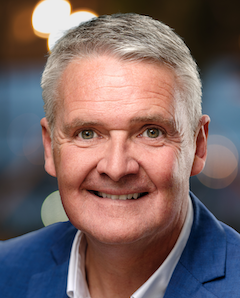 Intercity Technology’s acquisition of Microsoft specialist Centrality created a £60 million turnover business with a 325-plus headcount serving over 1,300 customers. And according to CEO Charlie Blakemore the deal marks the start of a campaign to hit £100 million turnover by 2030.
Intercity Technology’s acquisition of Microsoft specialist Centrality created a £60 million turnover business with a 325-plus headcount serving over 1,300 customers. And according to CEO Charlie Blakemore the deal marks the start of a campaign to hit £100 million turnover by 2030.
What are your broader strategic objectives following the Centrality acquisition?
We’ve seen significant organic growth over the last three to four years across all of our product solutions and services. That’s given us the ability to target acquisitions such as Centrality. This wasn’t a short term transaction, it’s about long-term growth. Intercity is aiming to be a £100 million turnover business with 500-plus employees by 2030. We’ve already gone from a 160 headcount and £28 million turnover in 2021 to almost £60 million and 325 employees.
The Centrality acquisition is also a key strategic step in broadening our services to meet the demands of customers and the market. We’ve got a strong customer base and now have an opportunity to offer them an almost complete one-stop-shop for all ICT needs.
What was the rationale underpinning the deal?
We planned this acquisition for over 12 months. The Microsoft area of our business was growing quickly and demand was outstripping our ability to keep up. So we did a deep analysis of external factors, the market growth in technologies, customer demand and our ability to grow. It became clear that to accelerate and propel our growth in this area we needed an acquisition.
But we were strict in terms of the type of business that we wanted to buy. Have they got the breadth of capability that we wanted in the Microsoft space? More importantly, do we have aligned values? Are they the best technology partner to work for and with? Centrality fit the bill and adds strategic value to our growth plans.
What trends are you tracking in the market that interest you most?
The adoption of AI and cybersecurity. But more generally, businesses are becoming strategic about technology. They are seeing technology as a key enabler for growth, allowing them to do more and be more productive – but they are also doing that in the most efficient manner, in some cases outsourcing aspects of their IT to a trusted partner. We’ve dealt with many fantastic IT teams unable to think strategically because they are too busy keeping the lights on. We’re working with these teams to free up their time and support their strategic outlook.
Where are you seeing the greatest success?
The market is challenging but we’re seeing growth in almost all areas of the business. We’ve got a good portfolio of communications, managed IT, cloud security services, and now a Microsoft practice. Another huge focus area for us is making sure we keep delighting customers. We’ve got a net promoter score of +93, we’re a Best Company to Work For 3 Star, and we’ve got an EcoVadis Framework for ESG. We’re doing all the right things as a business and seeing the benefits. In 2023 we had a record level of new logo businesses joining, over 80 new businesses on top of our loyal customer base. In terms of target markets – because of our broad portfolio we have customers across many sectors including construction, logistics, charities, manufacturing and the public sector. That in itself builds good resilience.
What big change do you want to see in the ICT sector?
We need a culture change on security, from the device to the cloud. We need every single user to think more and be more secure because in the next few years the cyber threat is going to be one of, if not the most, significant risks to businesses.
What are today’s leadership priorities for channel execs?
You’ve got to provide a compelling proposition that’s competitive and enables customers to do more with the technology you provide. And embracing AI is key. But ultimately it’s all about being a trusted partner.
